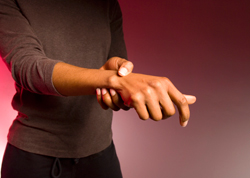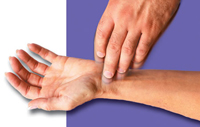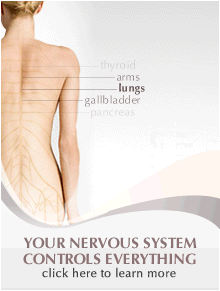Carpal Tunnel Syndrome

Your wrist problem may be a misalignment of one or more joints in your neck, shoulder, elbow or wrist.
Chiropractic techniques that work so well with the spine can be applied to other joints of the body. Virtually every joint is susceptible to fixations and malfunctions that impair function and range of motion. Trauma, micro-traumas, vibrations and repetitive motions are often culprits.
The Tunnel
The carpal tunnel is a band of ligaments and small bones in your wrist. Painful symptoms can result when nerves are compressed by a collapse of this nerve “tunnel.”
The Spine
Many are surprised to learn that the cause of their wrist problem may be due to functional changes to one or more joints of the neck, shoulder, elbow or wrist. Subluxations in the upper back and neck regions of the spinal cord may compromise the workings of any structure between it and the tip of your littlest finger. This is often called the double crush syndrome.
Other Extremities
Shoulders, hip problems, knees, ankles and even jaw problems have been shown to respond to chiropractic care. Find out before resorting to more drastic treatments such as surgery!
Chiropractic First
It just makes sense to take the more conservative approach first: chiropractic first, drugs second and surgery last! Schedule a no-obligation consultation and find out what safe and natural chiropractic may do for you.
Frequently Asked Questions:
- Can chiropractic repair bone spurs?
Bone spurs and other arthritic change to joints throughout the body is a common response to long-standing malfunction. Restoring proper nervous ststem function is hoped to at least slow this degenerative process.
- Does cracking your knuckles cause damage?
There may be danger of overextending already loose knuckle joints, adding motion to these or other joints of the body is best left to an experienced chiropractor.
- Is it okay to wear a wrist brace?
A brace is often prescribed to help protect the wrist and reduce mobility. While it may alleviate certain symptoms, it virtually ignores the malfunctioning joints causing the problem. The chiropractic approach is to help restore proper motion to affected joints and strengthen supporting muscles and soft tissues. While this may require some type of ongoing supportive care, many clients are able to resume their activities without bracing.
 Request Appointment
Request Appointment Email Us
Email Us Office Hours
Office Hours 



